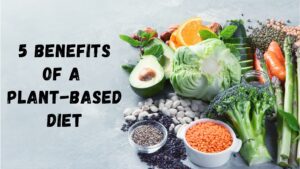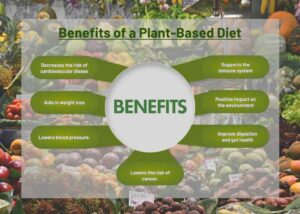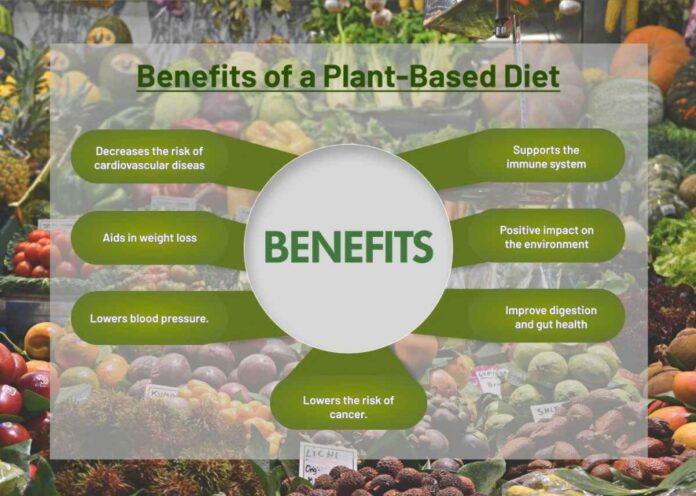
In recent years, plant-based diets have gained substantial popularity as people become more conscious of their health and the environmental impact of their food choices. This shift towards plant-based eating is not just a fleeting trend but a transformative movement that reflects a broader understanding of nutrition, sustainability, and ethical considerations. This article explores the benefits of plant-based diets and offers practical tips for creating a balanced nutrition plan that supports optimal health.
Benefits of a Plant-Based Diet
1. Improved Health Outcomes
One of the most significant benefits of a plant-based diet is its potential to improve overall health. Research indicates that plant-based diets can lower the risk of chronic diseases such as heart disease, diabetes, and certain cancers. Plant-based diets are typically rich in essential nutrients like fiber, vitamins, and minerals, and low in saturated fats and cholesterol, which contribute to better cardiovascular health and weight management.
2. Weight Management
Plant-based diets can be effective for weight management and weight loss. Foods like fruits, vegetables, legumes, and whole grains are often lower in calories and fat compared to animal products. Additionally, the high fiber content in plant-based foods helps to increase satiety and reduce overall calorie intake, making it easier to maintain a healthy weight.
3. Enhanced Digestive Health
The high fiber content of plant-based diets promotes better digestive health. Fiber aids in regular bowel movements, prevents constipation, and supports a healthy gut microbiome. A diverse range of plant-based foods can provide the necessary prebiotics to feed beneficial gut bacteria, leading to improved digestion and overall gut health.
4. Environmental Sustainability
Plant-based diets have a lower environmental impact compared to diets rich in animal products. Producing plant-based foods generally requires fewer natural resources, such as water and land, and results in lower greenhouse gas emissions. By choosing plant-based options, individuals can contribute to the reduction of environmental degradation and support more sustainable food systems.
5. Ethical Considerations
For many, adopting a plant-based diet is driven by ethical concerns related to animal welfare. Plant-based eating eliminates the need for animal agriculture, which often involves practices that raise concerns about animal rights and well-being. By opting for plant-based foods, individuals align their dietary choices with their ethical values and contribute to the humane treatment of animals.
Tips for a Balanced Plant-Based Nutrition Plan
1. Diversify Your Food Choices
To ensure you receive all the essential nutrients, it’s important to include a variety of plant-based foods in your diet. Incorporate a wide range of fruits, vegetables, whole grains, legumes, nuts, and seeds. Each food group offers unique nutrients and health benefits, so diversity is key to a well-rounded nutrition plan.
2. Focus on Protein Sources
Adequate protein intake is crucial for maintaining muscle mass and overall health. Plant-based protein sources include legumes (such as lentils, chickpeas, and beans), tofu, tempeh, edamame, quinoa, and nuts. Combining different protein sources throughout the day can help ensure you meet your protein needs.
3. Ensure Adequate Vitamin B12 Intake
Vitamin B12 is primarily found in animal products, so it’s essential for those on a plant-based diet to seek alternative sources. Consider fortified foods such as plant-based milk, cereals, and nutritional yeast. In some cases, a B12 supplement may be necessary, so consult with a healthcare provider for personalized advice.
4. Include Omega-3 Fatty Acids
Omega-3 fatty acids are important for heart health and brain function. Plant-based sources of omega-3s include flaxseeds, chia seeds, hemp seeds, and walnuts. Consider incorporating these foods into your diet regularly to meet your omega-3 needs.
5. Monitor Iron and Calcium Intake
Iron and calcium are important minerals that need to be included in a plant-based diet. Plant-based sources of iron include spinach, lentils, and fortified cereals. To enhance iron absorption, pair iron-rich foods with vitamin C-rich foods like citrus fruits or bell peppers. For calcium, choose fortified plant-based milks, leafy greens, and almonds.
6. Stay Hydrated
Hydration is an essential aspect of a balanced nutrition plan. Drink plenty of water throughout the day and include hydrating foods like cucumbers, watermelon, and oranges in your diet. Staying hydrated supports overall health and aids in digestion.
7. Plan Your Meals
Meal planning can help you maintain a balanced plant-based diet and ensure you get all the necessary nutrients. Plan your meals ahead of time, focusing on nutrient-dense foods and incorporating a variety of ingredients. Consider using a meal prep strategy to simplify your routine and avoid last-minute unhealthy choices.
8. Consult with a Nutritionist
If you’re new to plant-based eating or have specific health concerns, consulting with a registered dietitian or nutritionist can provide valuable guidance. A professional can help you create a personalized nutrition plan that meets your individual needs and goals.
Conclusion
The rise of plant-based diets reflects a growing awareness of the benefits of plant-based eating for both personal health and the environment. By understanding the advantages of a plant-based diet and implementing practical tips for balanced nutrition, individuals can make informed choices that support their well-being and contribute to a more sustainable world. Embrace the diverse and delicious options available within a plant-based diet, and enjoy the many benefits it has to offer.




